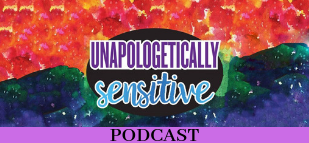SUMMARY
In this episode, Patricia (she/her) and Alex (they/them) continue their series on What is Autism? by exploring DSM criteria alongside lived experiences. They discuss how autistic people navigate relationships, friendship dynamics, context shifting, alexithymia, PDA, and the double empathy problem. Both share personal stories of how autism shows up in day-to-day life, from kettles breaking to difficulty with group projects, and offer insights that go beyond clinical definitions.
SOME KEY THINGS DISCUSSED
- The challenges and resilience that show up in everyday autistic life (like handling a broken kettle without melting down).
- How alexithymia and interoception difficulties affect awareness of one’s own emotions.
- The role of PDA (Pathological Demand Avoidance–preferred term: Pervasive Drive for Autonomy) in amplifying “forbidden fruit” thinking when told not to do something.
- DSM Criterion A3: difficulties with developing, maintaining, and understanding relationships.
- Why initiating vs. maintaining friendships can feel very different for some autistic people.
- How executive functioning impacts social connection (remembering to text back, confirming plans, etc.).
- The double empathy problem and how communication mismatches are a two-way street.
- Why autistic-to-autistic friendships often feel easier and less draining than cross-neurotype relationships.
- The myth that autistic people lack imagination or creativity.
- How imaginative play and group projects often reflect mismatches in processing styles, not a lack of creativity.
- The importance of shared interests in sparking autistic creativity and play.
- How monotropism (deep focus on one thing) shapes transitions and task-switching.
- Why context shifting (e.g., from task to social mode) can feel jarring.
- Strategies like sitting in the car before appointments as a transition aid.
- The tension between expectations in friendships vs. lived autistic processing differences.
- Trauma’s role in shaping how autistic adults approach relationships.
- Why diagnoses and labels can provide self-understanding and compassion.
- How disappointment in friendships often stems from mismatched expectations.
- The unique blend of humor, honesty, and vulnerability that autistic friendships bring.
SOUNDBITES
“I had to kind of like talk myself through it so I didn’t have a meltdown… but if it were a different day, I probably would have.” – Alex
“I find making friends very easy. It’s the maintaining of the relationships that’s very challenging.” – Patricia
“It’s like you’re interviewing someone for a job. I just genuinely want to know about them.” – Alex
“Without understanding autism, we assume everybody’s like us. And when people don’t meet our standards, we’re like, what the heck is wrong with everybody?” – Patricia
“Relationships are just challenging. I think they’re great, I think we need them, but there are so many nuances.” – Patricia
CHAPTERS (Please adjust for the addition of the intro):
00:00 Navigating Daily Challenges and Emotional Responses
02:55 Understanding Autism: DSM Criteria and Personal Experiences
05:35 The Complexity of Relationships and Friendships
08:38 Executive Functioning and Social Interactions
11:34 The Double Empathy Problem and Communication Mismatches
18:55 Understanding Autism and Communication Differences
20:16 Imaginative Play and Creativity in Autistic Individuals
24:09 Context Shifting and Task Management Challenges
29:47 Navigating Group Dynamics and Social Interactions
32:25 Future Conversations and Closing Thoughts
ABOUT YOUR HOSTS:
Alex McLaughlin (they/them) has a Master’s in Social Work, and is a licensed independent clinical social worker (LICSW) on Wahpekute land (colonized as MN). Alex is an AuDHDer, PDAer, Queer, non-binary, fat, chronically ill, disabled, & a multi-racial (1/8th Chinese & white passing) human with lived experience of OCD. As a late diagnosed adult, Alex has felt different and embraced their quirky, eccentric nature—what they now recognize as undiagnosed AuDHD. This lifelong experience of masking and curiosity about people inspired their passion for understanding and serving others, ultimately shaping their path today.
Alex provides neurodivergent and Queer-affirming therapy and Autism and ADHD assessments on Wahpekute land (colonized as Minnesota). Their work is grounded in intersectional feminism, ecological systems theory, and a commitment to decolonizing mental health care. They support clients in exploring how interconnected systems shape their experiences, while fostering resilience, empowerment, and self-understanding—especially for Neurodivergent, 2SLGBTQIA+, BIPOC/POGM, and disabled communities. Trained in ERP, I-CBT (including ND-affirming I-CBT), sand tray therapy, TF-CBT, and somatic approaches, Alex also brings lived experience and is pursuing IFS to deepen their parts-informed practice.
Coaching, consulting and training coming soon! Head here to be notified when this practice opens!
Head to Alex’s website here to connect further: Here
Patricia Young (she/her) has a Master’s Degree in Social Work, and was a Licensed Clinical Social Worker for over 17 years, but she is now exclusively providing coaching. She knows what it’s like to feel like an outcast, misfit, and truthteller. Learning about the trait of being a Highly Sensitive Person (HSP), then learning she is AuDHD with a PDA profile, OCD and RSD, helped Patricia rewrite her history with a deeper understanding, appreciation, and a sense of self-compassion. She created the podcast Unapologetically Sensitive and Unapologetically AuDHD to help other neurodivergent folks know that they aren’t alone, and that having a brain that is wired differently comes with amazing gifts, and some challenges. Patricia works online globally working individually with people, and she teaches Online Courses for neurodivergent folks that focus on understanding what it means to be a sensitive neurodivergent. Topics covered include: self-care, self-compassion, boundaries, perfectionism, mindfulness, communication, and creating a lifestyle that honors you
Patricia’s website, podcast episodes and more here!
Additional LINKS
- Email us with questions related to the podcast

